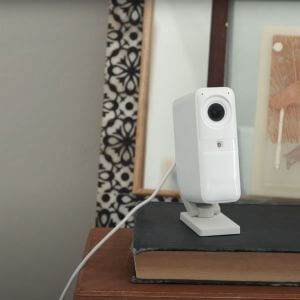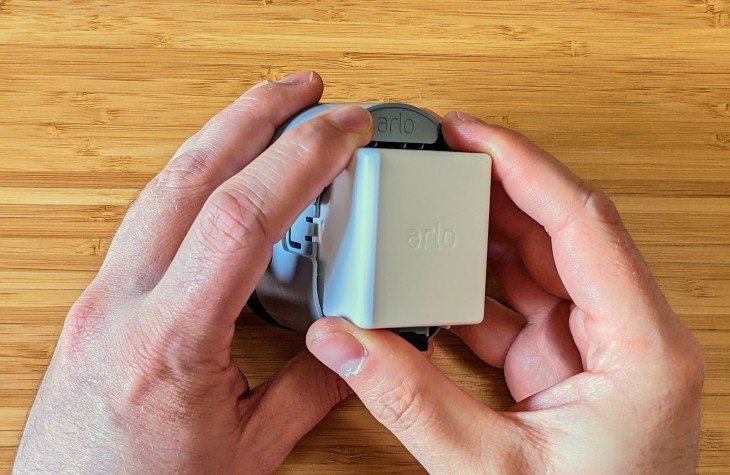Cove's monitoring plans (with RapidSOS) start at $17.99 a month for basic service without mobile app controls or security cameras—matching SimpliSafe's pricing tiers. But Cove's pricier Cove Plus plan ($27.99 a month) ups the ante with a lifetime warranty.
When you sign up for this system, you'll customize it with any sensors you want to install. These extras include a glass break detector, flood sensor, outdoor camera, and a medical alert/panic button. While there aren't any preset starter kits like other brands, Cove's quick survey and online shop keep the process simple. Plus, Cove more regularly discounts equipment for new subscribers than most rivals.
Cove's smart home gear lags behind Abode and Frontpoint. The system has some compatibility with Alexa and Google but no Z-Wave support, so you need to buy directly from Cove if you want to expand your system.
As we tested Cove, we liked how easy the installation was—it took about 30 minutes. Still, Cove was a little too eager to sound a full-blown alarm when we set off the smoke detector while cooking. We'd appreciate an easier way to cancel false alarms in the app or on the control panel.
Overall, Cove is a solid alternative to SimpliSafe, with competitive prices, security cameras (learn more about Cove cameras), and equipment to match. Cove's wildly easy to set up in only a few minutes, and you won't need a contract to do it.
Check out our full Cove review to learn more.


























